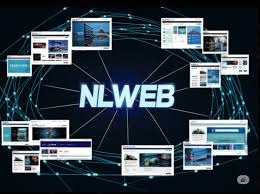Microsoft’s NLWeb is transforming how websites interact with AI agents, making schema markup the cornerstone of modern SEO. In this new “agentic web,” structured data isn’t just helpful—it’s essential for visibility, discoverability, and machine-driven engagement.
Microsoft’s launch of NLWeb marks a seismic shift in digital search, introducing the “agentic web”—a framework where AI agents actively engage with online content. Unlike traditional SEO that optimizes for human clicks, NLWeb enables websites to become conversational interfaces, allowing AI systems to query, navigate, and even transact using natural language. At the heart of this transformation is schema markup, which now serves as the primary language for AI visibility. Websites that embrace structured data will be better positioned to surface in AI-driven interactions, making schema a strategic asset for brands, publishers, and developers.
Major takeaways
NLWeb introduces the “agentic web,” where AI agents interact directly with websites
Schema markup becomes critical for visibility and machine comprehension
Websites evolve from static pages to dynamic, queryable knowledge graphs
SEO focus shifts from link equity to structured data optimization
AI agents can perform tasks like navigation, search, and transactions via schema
Early adopters of schema-rich content will gain a competitive edge in AI-driven search
Sources: Search Engine Land, Franetic, WebProNews.
